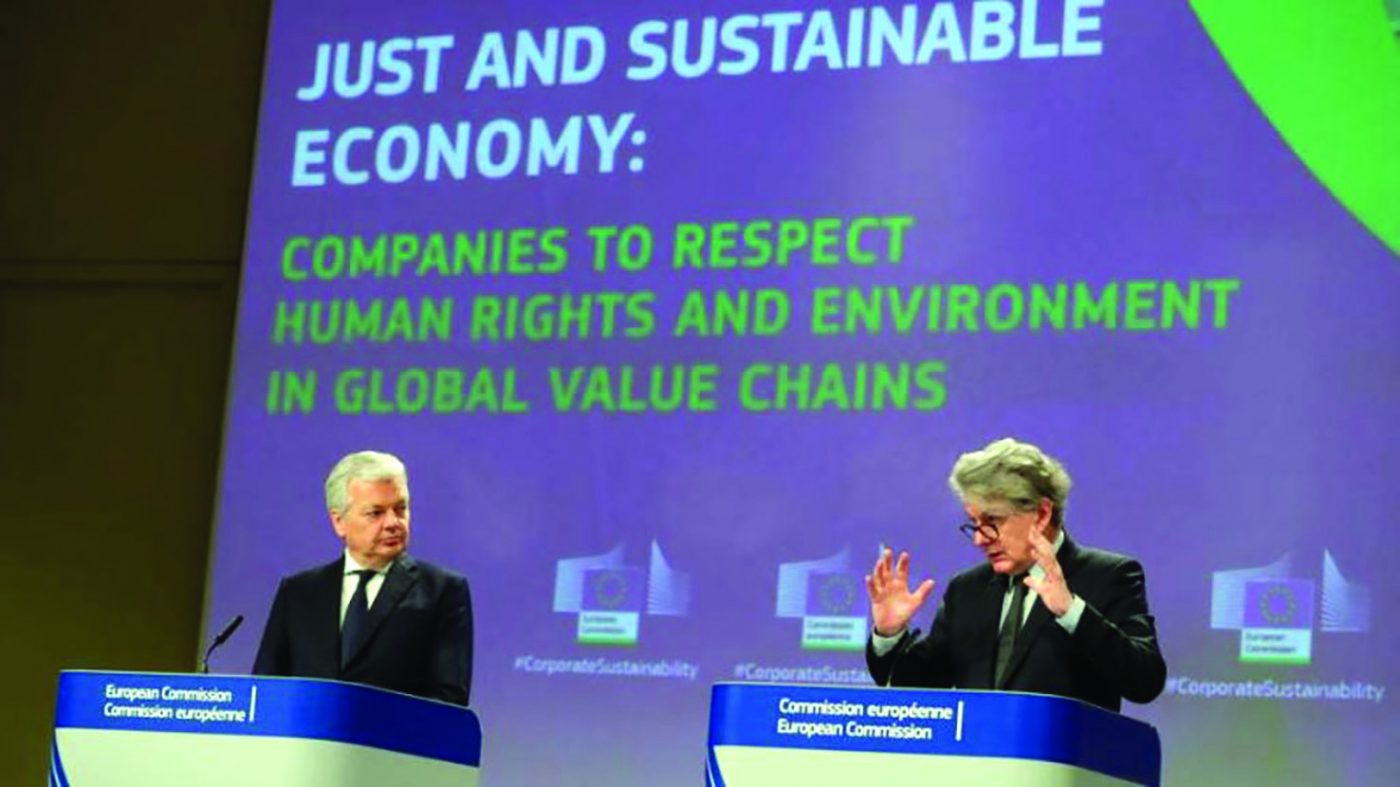The European Union (EU) is about to issue a bill on supply chain appraisal. Doanh nkarma Vietnam needs to have an adaptation plan soon.
This bill is considered an important part of the effort to ensure that companies in this sector are responsible for people and the environment during business operations...
Upgrade old regulations
The practice of trading with the EU market shows that, since 2 decades ago, European lawmakers have set many pioneering regulations on protecting the ecological environment and promoting human rights in business activities. international.
For example, the IUU regulation from 2008 aims to prevent, deter and eliminate illegal, unreported, and unregulated fishing activities. Or since the 18th century, many European countries, such as the Netherlands, England, Hungary... have issued laws regulating age and working time for child laborers.
Appraisal Bill supply chain is being discussed by the European Commission (EC), which may apply from 2026. This bill aims to improve the protection of human rights in global supply chains and prevent violations, such as child labor and forced labor, banning substances harmful to humans and the environment, anti-discrimination, appropriate pay and reasonable working hours,...
These regulations are consistent with the trend of sustainable development and responsible business. But this bill, if passed by the European Parliament, will be a step in upgrading the standards to a more stringent level. Some large corporations even expressed concern that it would be difficult to apply these standards. “This is another blow to European competitiveness,” said Siegfried Russwurm, President of the Confederation of German Industry.
Challenges must be overcome
The supply chain appraisal bill, which is controversial within Europe, may be adjusted in a more relaxed direction before it is officially approved by the European Parliament. However, that is enough to create a big barrier for businesses from developing countries that are operating and cooperating with the EU.
The first challenge to overcome is the business mindset, the mindset of putting profits first, which will definitely end the door to the EU. That forces businesses to redesign their systems, from choosing business products, controlling input materials, production methods, and applying the best incentives for workers. This will lead to huge production costs. For example, to reduce environmental pollution according to common standards, businesses must spend about 30% of the total project investment capital to build waste treatment infrastructure. Compliance with this regulation in Vietnam is not really serious.
Difficulties are piling up for small businesses, so many experts suggest that in the scale structure, there needs to be an alliance between small businesses in the same industry. Specifically, small businesses that cannot directly export to the EU can withdraw and take on one or more stages in the supply chain for large businesses.
In Germany, businesses at the top of the supply chain are responsible for supporting businesses in the "chain" by providing training on risk handling with a certain funding source or budget.
Looking at it from a positive perspective, the new EU bill is a basic foundation for sustainable development, such as respecting human rights, protecting the ecological environment, in line with the global common goal of reducing emissions, green development, combating climate change. In particular, this bill also contributes to transparency of institutions and policies, creating a healthy economic environment in developing countries.
Ms. Do Thi Thuy Huong - Vice President of the Vietnam Supporting Industry Association said: "Complying well with the responsibilities prescribed for businesses in the supply chain not only helps increase production and business capacity, but When workers and the environment are treated well, businesses and the economy can develop sustainably."
This is a national task that cannot be undertaken by any single individual. Because the commodity supply chain involves almost every microeconomic activity, many industries and many State administrative management agencies.
In other words, for sustainable development to be a national strategy and vision, a decades-long roadmap is needed. In particular, the State plays a leading role in guiding policies, finance, incentive packages, as well as sanctions against organizations and individuals that do not comply...
Nguon: Business Forum Magazine.



